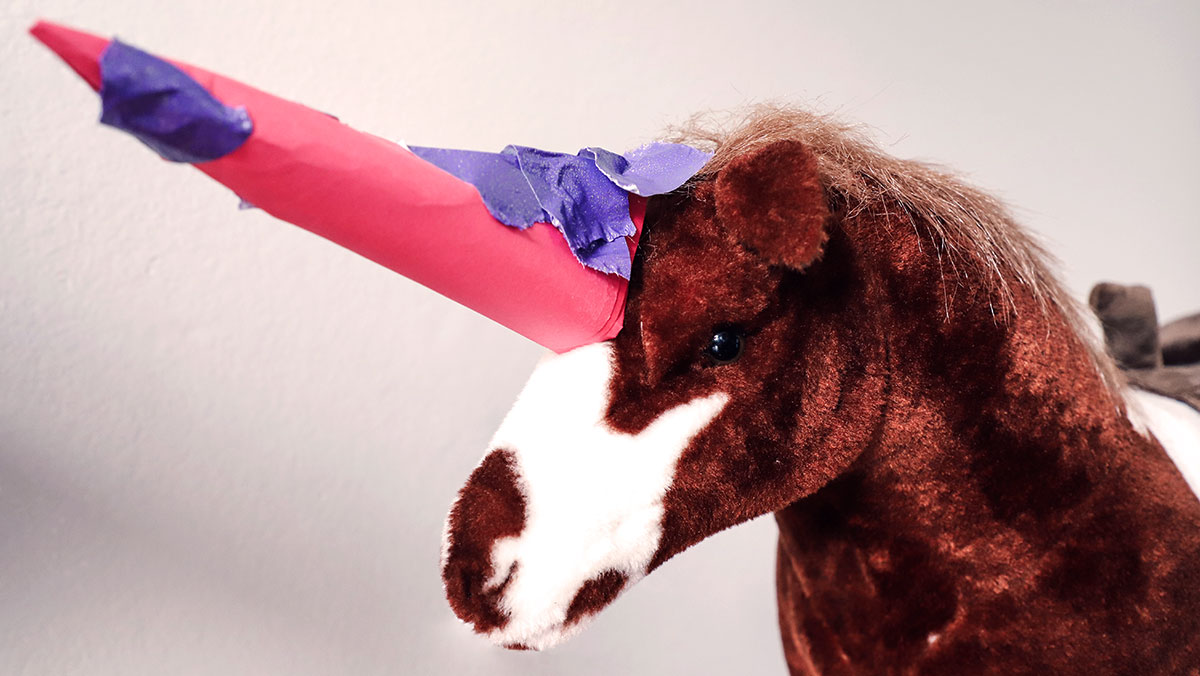
Every market is cluttered. Every category, every philosophy, every perspective, innovation, and fragmentation — all cluttered. Whether you are trying to sell post-modern abstract impressionist rub-on tattoos on Etsy or soda in a bodega, making your way through the category probably feels a bit like running through an electrical storm with a 60-inch crowbar in your hands. There is no open terrain and it’s easy to spend more energy avoiding obstacles than moving beyond them. Yet, everyone’s strategic advice is the same, “Find your whitespace by being more unique.”
I’ve been privy to a lot of different pitch meetings: strategic, creative, production, client, editorial, you name it. Everyone has their own personality and their own flavor, but their recommendations are almost always the same. “Find a clear, ownable, and defensible place in culture.” Some folks call it “finding the whitespace” and some folks call it “looking for blue water” but whatever lexicon you subscribe to, the sentiment is the same, “Become unique and then defend it.” Unfortunately, when every facet of life is overly branded, being unique is just another commodity.
“I need to be myself / I can’t be no one else.” — Oasis
We all want to be unique. Not too unique, of course. We want the kind of individuality that can flaunt the funk while still being accepted. Whether it’s using high fashion to sell beverages or hip hop to sell hamburgers, the quest for approvable individuality is at the core of all modern commerce. As mankind continues its willing devolution into ‘brandkind,’ these types of marketing devices will continue to become more ubiquitous in our culture.
Why hunt for a unicorn when you can glue a horn on a horse instead? Besides, with the right photographer and lighting, no one will know the difference. And glue horns on horses they did, droves of them. Now, all we have is perfectly positioned, eloquently articulated, and exquisitely lit horses dressed up as unicorns.
In the creative realm, big new ideas are held in the highest esteem. But there is no audience for a new idea — because it hasn’t happened yet. So truly innovative thinking is seldom encouraged and new ideas are rarely conceived. When an idea has to be validated through metrics, data, consumer feedback, and otherwise, before it is applied, how can anything unique possibly survive? That’s how we end up settling for a herd of horses with horns glued to their heads.
When new is scary, unique is a commodity, and the line between brands and humans is in a constant state of erosion, the best strategy is to forget about the whitespace and just find the right place.
“Don’t try to be original. Be simple. Be good technically, and if there is something in you, it will come out.” — Henri Matisse
While working with companies, teaching interns, and lecturing at colleges, one thing has become abundantly clear: The thing that makes you the most unique you, the thing that gives you that ownable perspective, is usually the thing that you view as your biggest weakness.
It’s easy to rally behind our shared personality traits. It’s even easier to rally behind congruent aesthetics, but the truth is that being a mash-up, or a spin-off of a person or brand that already exists isn’t differentiating. When we over-focus on uniqueness, we under-develop our truth. The outlier, that bit of ourselves that doesn’t fit into the mold, that is the good stuff. That is where we find our unique perspective. As with humans, so with brands. What doesn’t fit in, is what will stand out.
There are hundreds of interviews with amazing musicians talking about how they tried to sound just like their favorite players but couldn’t. Their failure to assimilate sonically became their signature. B.B. King is famous for his unmistakable vibrato on the guitar — that slight tone variation that guitarists use to give a single note a singing effect. His vibrato style is so distinct that you can’t even get close to it without having it considered a homage to B.B. King. But that vibrato style was the product of his failed attempt to copy the bottleneck-slide guitar sound of his cousin, Delta blues legend, Bukka White. Where B.B. King couldn’t fit in with the traditional blues style, B.B. King stood out.
“Man, sometimes it takes a long time to sound like yourself.” — Miles Davis
It may be a counter-intuitive strategy, but it’s human nature for like-minded people to gravitate towards one another. The right audience will find you, your work, and your brand if you find the right space. Your unique value proposition already exists. It just might be buried under a heap of clutter, commodification, insecurity, and failed assimilation. As with humans so with brands. So, the real question is, do we as people, businesses, companies, and brands have what it takes to embrace the unique attributes that make us truly valuable? If so, your strategy should be as simple as putting your truths at the center of your story.
“Free your mind and your ass will follow / The kingdom of Heaven is within.” — Funkadelic
Like all of the great gurus, deities, philosophers, and Dr. Funkenstein himself George Clinton teach us, the truth that makes us most unique isn’t out there waiting to be discovered. It is within, ready to be freed.
Image source: Elizabeth Lekas